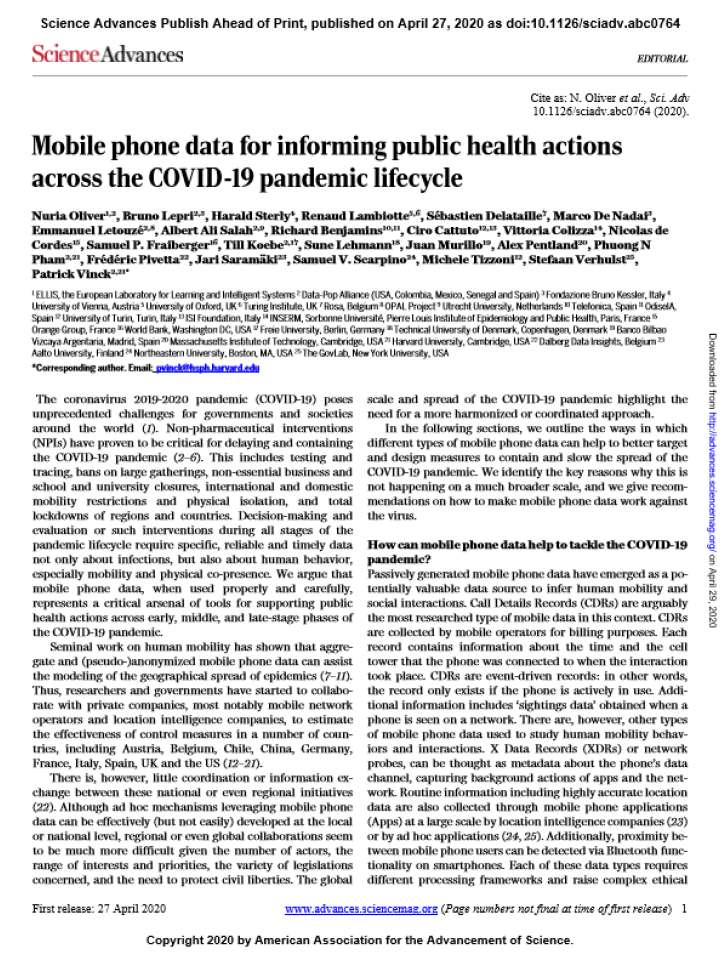Mobile phone data for informing public health actions across the COVID-19 pandemic life cycle
The paper outlines the ways in which different types of mobile phone data can help to better target and design measures to contain and slow the spread of the coronavirus disease 2019 (COVID-19) pandemic. The authors identify the key reasons why this is not happening on a much broader scale:
- Governments and public authorities frequently are unaware and/or lack a “digital mindset” and capacity needed.
- Most companies, including mobile network operators, tend to be very reluctant to make data available–even aggregated and anonymized–to researchers and/or governments.
- The use of mobile phone data raises legitimate public concerns about privacy, data protection and civil liberties.
- Researchers and technologists frequently fail to articulate their findings in clear, actionable terms that respond to practical political and technical questions.
- There is little political will and resourced invested to support preparedness for immediate and rapid action.
The authors would then give recommendations on how to make mobile phone data work against the virus:
- To effectively build the best, most up to date, relevant, and actionable knowledge, governments, mobile network operators and technology companies, and researchers should form mixed teams.
- Relevant government and public authorities should be involved early, and researchers need to build upon their knowledge systems and need for information.
- Such efforts should be transparent and involve data protection authorities and civil liberties advocates early on and have quick iteration cycles with them.
- Any efforts should meet clear tests on the proportionate, legal, accountable, necessary and ethical use of mobile phone data in the circumstances of the pandemic and seek to minimize the amount of information gathered to what is necessary to accomplish the objective concerned.
- International exchange should be promoted, with other domain experts, but also with other initiatives and groups; findings must be shared quickly―there will be time for peer-reviewed publications later.
- For later stages of the pandemic, and for the future, stakeholders should aim for a minimum level of “preparedness” for immediate and rapid action.
- In addition to (horizontal) international exchange, international approaches that are coordinated by supranational bodies are also needed. National initiatives might help to a certain extent but will not be sufficient in the long run. A global pandemic necessitates globally or at least regionally coordinated work.
Explore further

